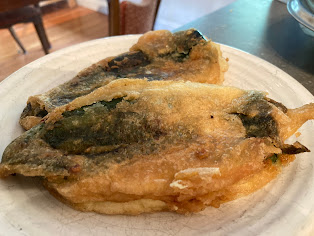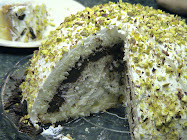1. A raw, inexperienced person. Obs.
1640 R. Brome Sparagus Garden II. ii, I warrant you, is he a trim youth? We must make him one Iacke, 'tis such a squab as thou never sawest; such a lumpe, we may make what we will of him.
2.
a. A newly-hatched, unfledged, or very young bird.
1865 C. Kingsley Hereward v, At the bottom of each [pie] a squab or young cormorant.
b. spec. A young pigeon.
c. A young rabbit. rare.
(from the Oxford English Dictionary, online)
It was mid-afternoon, my second day on the colony of Riva Palacios, one of Bolivia’s most established and prosperous Mennonite colonies. I was spending a few days with the family of Wilhelm and Susanna Martens who lived in the village of Waldheim about an hour’s drive south of the city of Santa Cruz. I had been warmly welcomed by all members of the family, children included and so I gladly accepted thirteen year old Jacob’s invitation to inspect the rabbit operation that he and his older brother had set up. With his three younger sisters in tow along with a bevy of pets, Renshaw and Scuba their dogs, a cat or two, Jacob led me to the hen house which doubled as a rabbit hutch. We made our way through the flutter of squawking chickens and into the mesh wire enclosure that housed the ever expanding herd of rabbits. Jacob was well versed in the habits of rabbits and knew his warren well. He explained that he and his brother had about two dozen breeding does and that this ensured a steady supply of meat for the Santa Cruz market. Every rabbit they sold got them fifteen bolivianos. He spotted which does were his and which belonged to his brother. He knew which rabbits were ready for market and which ones were still too immature to sell. Along the far wall he and his brother had arranged cinder blocks to serve as nesting boxes. As he gently pushed through the fluff and grass that filled one of the boxes, he inspected the litter of squirming, hairless squabs that had been born after his last visit yesterday to tend to the rabbits. From the adjacent box he lifted a doe and pointed to the tufts of hair that she had pulled from her chest and which now lined the nest; a sure sign that she was ready to kindle. Undoubtedly there would be another six or seven kits when next he came to feed and water his herd. But there were a few wrinkles in this fledgling entrepreneurial fraternity; Jacob did the lion’s share of the work but wasn’t rewarded the lion’s share of the profit! But what are you to do when your sixteen year old brother sets the terms of the partnership!
My knowledge of rabbit husbandry greatly expanded, we eventually left the chicken coop-cum-rabbit pen. Once outside I noticed the many pigeons roosting on the peak of the hen house. I wondered aloud whether Jacob’s entrepreneurial venture extended to these squabs as well. There’s no money in pigeons was Jacob’s quick retort. He went on to point out that there could be a market for pigeons as there were restaurants in Santa Cruz that served it. He also pointed out that somebody was making money on pigeons because these restaurants charged astronomical prices for such dishes. But Jacob was more than skeptical that he would see any of the profit; it was the restaurant that was making all the profit. It was at this juncture that I couldn’t help but recall yesterday’s midday meal preparations. The kitchen was overflowing with members of the Martens family and I was having difficulty finding a place to stand where I wouldn’t be in the way. Sarah, one of the older Martens daughters was cutting up potatoes and deep frying them. Susanna was cutting up lettuce and avocado while simultaneously trying to contain the bedlam her youngest three daughters were creating as they ran in and out and through the kitchen chasing each other and the cats that were in no way allowed in the house. In the midst of this exuberant uproar, Jacob was calmly and attentively helping his sister Tina fry the chicken. I watched as he placed the chicken pieces in the pan and then comment to his sister on how to fry them. In the two months I had spent on Mennonite colonies in Latin America, I had not before seen a boy cooking. It is not as if Jacob would have had to have been there; his mother and older sisters were more than competent as cooks. But the cuisinier in me presumed that he took his place next to the skillet for the simple reason that he loved to cook. Now standing outside the hen house, gambling that my impertinent thought in yesterday’s kitchen was warranted, I asked, did he know that in the kind of restaurants that served pigeon the cooks were usually men? Did he know this? Yes, of course he did!
I had my share of remarkable food moments during my visits on Mennonite colonies—the penetrating smoky aroma of a ham hanging overhead; a bowl of chicken noodle soup for night snack; Susanna’s feather light cottage cheese piled on an oven warm bun—but I had never in my wildest imagination expected to encounter a fellow gastronome and discuss the haute cuisine of Santa Cruz. Goes to show what a squab I am.
Wednesday, 19 January 2011
Subscribe to:
Comments (Atom)














































